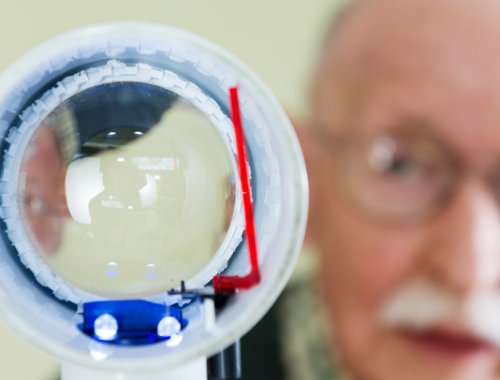What Happens To The Brain In Depression?
4 min read
What Happens To The Brain In Depression?
Depression is a debilitating condition that affects more than 264 million people worldwide. It is characterized by ongoing sadness, loss of energy, changes in sleep patterns, and thoughts of worthlessness or suicide. But what exactly happens to the brain in depression? Scientists have made tremendous advances in understanding this complex disorder. It is underlying causes over the last several decades—and a new wave of research has thrown light on some surprising facts about the effects depression can have on your mental health.
we are exploring how various areas of the brain are affected by major depressive disorder (MDD) to better understand its impact and offer helpful insights into managing it holistically.
What is depression?
Depression is a mental health disorder that affects how you think, feel, and behave. It can manifest in many ways, but common symptoms include
persistent feelings of sadness or hopelessness
low self-esteem
lack of motivation or energy
difficulty concentrating
changes in appetite or sleep patterns.
Depression caused by an imbalance in brain chemistry. Neurotransmitters, which are chemical messengers responsible for communicating between neurons in the brain. It can become too low or out of balance due to stress or other factors, causing depression.
What are the different types of depression and how do they affect the brain?
The most common type of depression is Major Depressive Disorder (MDD). Other types of depression include Persistent Depressive Disorder (PDD), Seasonal Affective Disorder (SAD), and Bipolar Disorder. Each type of depression affects the brain differently, but they all involve chemical imbalances and disruptions in normal brain functions.
MDD affects the prefrontal cortex (PFC), which is responsible for decision-making and regulating emotions. When it’s not functioning as it should, people with MDD can experience difficulty making decisions and controlling their emotions. It also affects the hippocampus, which is responsible for regulating memory and learning. People with MDD may experience problems with recall or concentration due to a decrease in activity in this area of the brain.
PDD is similar to MDD but it lasts much longer, up to two years or more. It is often characterized by a pervasive sense of despair and hopelessness, as well as fatigue and changes in appetite or sleep. PDD affects the amygdala, which is responsible for processing emotions like fear and anxiety. When the amygdala is overactive, people with PDD can experience heightened levels of anxiety and fear.
SAD affects areas of the brain that regulate mood, such as the hypothalamus, which plays a role in regulating sleep cycles and hormone levels.
Bipolar disorder can affect multiple areas of the brain including the prefrontal cortex, hippocampus, amygdala and hypothalamus.
How does stress contribute to depression and what happens in the brain as a result?
Stress can trigger depression by causing an imbalance in brain chemistry and disrupting the activity of neurotransmitters. When subjected to stress, the body releases hormones like cortisol which can interfere with the normal functioning of neurotransmitters. This can cause feelings of anxiety, sadness or irritability that lead to depression.
Moreover, chronic stress can also damage certain areas of the brain, such as the hippocampus. Which is responsible for regulating memory and learning. This damage can lead to changes in behavior and thinking that can worsen depression symptoms. Stress can also interfere with parts of the prefrontal cortex, which helps regulate emotions and decision-making. When the amygdala is overactive, people may also experience heightened levels of fear and anxiety. These effects can worsen depression symptoms such as persistent sadness or hopelessness.
Overall, stress can cause chemical imbalances in the brain that lead to feelings of depression and impair normal brain functions. It’s important to take steps to reduce stress to help manage these symptoms. Getting enough sleep, eating a balanced diet and exercising regularly can all help reduce stress levels and improve mental health.
How can you protect your brain from depression-related damage?”
The best way to protect your brain from depression-related damage is to take steps to reduce stress. Which can cause imbalances in brain chemistry and disrupt normal functioning. Getting enough sleep, eating a balanced diet and exercising regularly can help reduce stress levels and improve mental health. Additionally, engaging in activities that promote relaxation such as yoga or meditation can help manage stress levels and protect the brain from damage. Setting aside time to practice self-care can also help reduce stress, as well as its damaging effects on mental health. Finally, it’s important to talk to a doctor or therapist if you feel like you are struggling with it. So that you can get the necessary treatment.
Overall, taking steps to reduce stress and engaging in activities that promote relaxation and self-care can help protect the brain from damage caused by depression. Additionally, getting professional help is important for managing depression in order to prevent any potential long-term damage.
Conclusion:
Depression can cause damage to the brain and lead to changes in behavior and thinking. Stress can contribute to depression by causing an imbalance in neurotransmitter levels and disrupting normal brain functions. To protect the brain from this damage, it’s important to take steps to reduce stress, engage in activities that promote relaxation and seek professional help if needed. These steps can help protect the brain from damage caused by depression and improve overall mental health.






